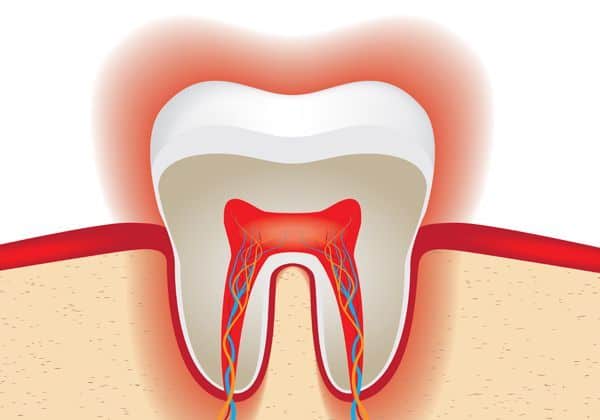Table of Contents
I make sure my teeth are always white. You too love to keep your teeth bright. Everyone is actually obsessed with white teeth. However, there is a potential danger, sensitive teeth after whitening!
Sadly, our teeth seem to get dull with time, and this is attributed to certain types of foods and drinks we consume. The foods leave stains on our teeth, making them dull and thus inhibit our natural white smiles.
But with the advent of teeth whitening products, it’s now easy to whiten your teeth anywhere, anytime. These whitening products are readily available and affordable. You can whiten your teeth just the night before your wedding day!
But something not so pleasing has been discovered about these whitening products. And that is – they cause sensitive teeth after whitening among the users. How exactly they do this and how you can do to end this suffering is what we’re going to discuss in our post below.
Causes of Sensitive Teeth After Whitening
After many years of research, it has been found that there are three top reasons behind teeth sensitivity after whitening. These are:
Increased Blood Flow and Pressure into Your Teeth Pulp
When you start using these whitening products, the level of blood pressure and supply to your teeth pulp will go up. Here’s why…
When you apply the whitening agent on your teeth, the bleaching molecules in them will penetrate your teeth and cause an increase in the level of blood pressure and flow. This will then result into mild pulpitis.
The diffusion of these molecules into your teeth is necessary for the amplification of the whitening effect of your teeth given that the chromophone molecules in your teeth dentine can easily be broken up by hydrogen peroxide.
Now, the increased blood pressure plus flow will irritate your teeth nerves, making them sensitive to external stimuli. This is where you’ll start to experience short, sharp pains – sensitive teeth after whitening.
Different users respond differently to this mild pulpitis, and it lasts for at most two weeks after the whitening process.
Increased Tooth Porosity
Using whitening products heightens the porosity of your teeth. Reason? It’s simple- due to the removal of the protective protein layer on your teeth surface. As your dentist might have told you many times, it’s always important to maintain this protein pellicle as it keeps the pores in the exposed dentine from the oral environment.
The sad news is that any whitening product MUST take off the protein layer to make it easy to dissolve the surface stains causing discolorations on your teeth. When pores on the exposed dentine open up, teeth sensitivity shall quickly follow.
Concentration Level of the Whitening Agents
All whitening products use whitening agents to make your teeth whiter. The most common agent is carbamide peroxide.
This is how the level of concentration of the bleaching molecule affects your teeth sensitivity: if the concentration is too high, sensitivity goes up. And if the concentration is too low, you’ll experience lower sensitivity or none.
10% Carbamide peroxide concentration is the level recommended by America Dental Association (ADA) as it causes less or NO sensitivity.
A tale is given of Schlater-Hewlett, Los Angeles School District program advisor. While in the middle of an aerobics class, she was hit by a piercing pain and fell on the floor. “It came out of nowhere,” she recalls. “All of a sudden, I was buckled over, my hand over my mouth, with this pass-out-on-the-floor kind of pain. People came over to me and asked, ‘Are you okay?’”
The source of this unfortunate incident? It wasn’t a muscle strain in the gym as you might think. Rather, it was her teeth. It was a tray filled with the bleaching agents that she wore the previous night to bed. The bleaching agent’s concentration level was around 10%. It instilled so much pain in her: she had to quit teeth whitening for good. She now uses teeth veneers- a more advanced and expensive version.
Here’s How to Get Rid of Teeth Sensitivity After Whitening
Follow the Product’s Whitening Instructions
One surefire way of avoiding the pain and discomfort that comes with whitening your teeth is by following the product’s user instructions. If you apply the product the right way, you’re less likely to face any pains. This should help you avoid sensitive teeth after whitening!
Different whitening products have different directions for use and following them carefully saves you the pain.
Use of Calcium-Based Desensitizing Toothpaste
With the help of your finger or q-tip, gently apply any high-quality calcium based desensitizing toothpaste on your teeth. By gently coating your teeth with this toothpaste, you’ll close all the open pores on your teeth and thus, reduce sensitivity.
An added advantage of using this kind of toothpaste is that they produce a remineralizing effect which helps improve the whitening process.
Brush Your Teeth before Whitening
If you brush your teeth after whitening, more pores will be opened on the exposed dentine and create more sensitivity. This might also cause damages to your enamel since some whitening agents contain acidic contents.
Rinse Thoroughly After Whitening Session
Suing water or any pH rebalancing mouthwash to thoroughly rinse your mouth after whitening will also help tame the zingers. Most brands try to make their whitening products pH balanced, but they end up being a bit acidic.
If you get your pH back to normal, you teeth will begin to recover. The pain of sensitive teeth after whitening will then start to fade.
Use Desensitizing Gel
You can also apply a desensitizing gel before the whitening exercise as it helps calm your nerves. To get the best out of this gel, apply it 10-30 minutes before whitening your teeth. You can apply the gel on the whitening trays given by your dentist and rinse them afterward.
An ideal desensitizing gel should be composed of 5% potassium nitrate and as well as fluoride.
Anti-Inflammatories Are Also Helpful
True. Anti-inflammatories, e.g. ibuprofen, taken before a whitening session can also help reduce your teeth sensitivity. For the best results, take 600mg of Ibuprofen an hour before you bleach.
Additional tips for coping with teeth sensitivity after whitening include:
- Cut down the intake of diets contains acids
- Use products with a lower concentration of the bleaching agent (5-10% carbamide peroxide recommended)
- Avoid applying the whitening products for longer than directed
- Don’t whiten your teeth too frequently
- Brush your teeth with a soft-bristled toothbrush
- Avoid too hot or too cold drinks
- If the pain persists, visit your dentist.
Final Thoughts
Teeth sensitivity is common for anyone looking to whiten their teeth. Knowing the origin of this discomfort and how to cope with is important as it helps you tame it. The above post explains to you all the major cases of teeth sensitivity after whitening and different ways in which you can cure it.













